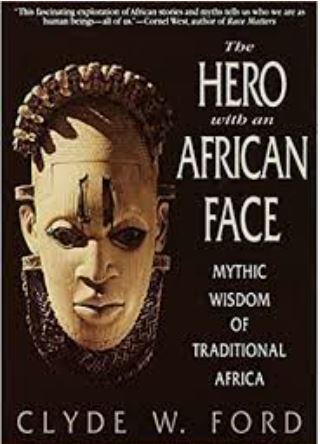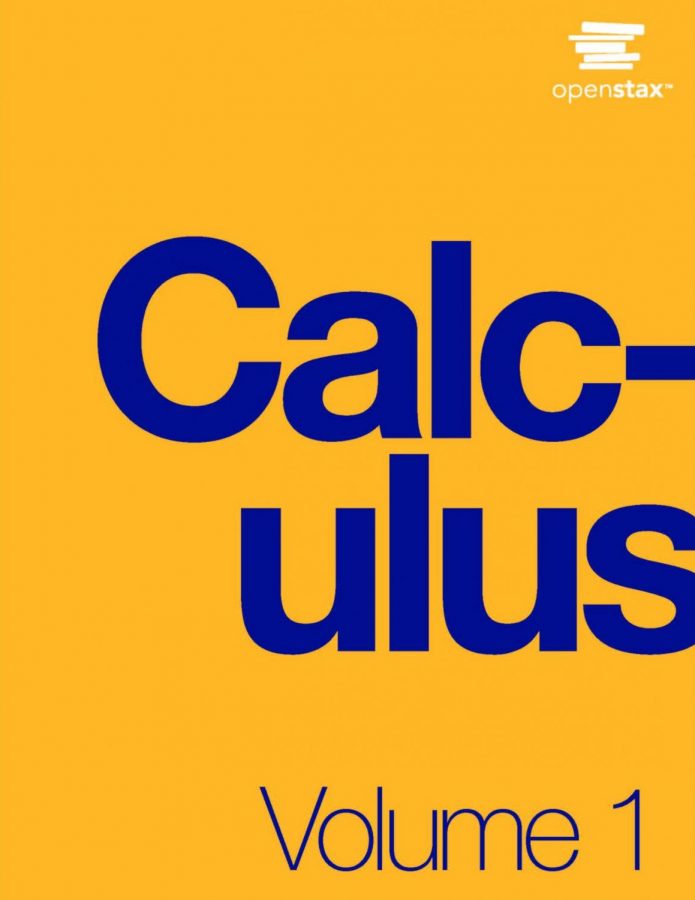6-on-6: September-October
*6-on-6 refers to six short articles for each of the six departments on campus: Art, English, History, Science, Foreign Language, and Math.
Art: Gooding Art Gallery’s First Show a Success
Kate Youell
Sophomore Andrea Waters uses art to distract from real life. “So I use my art from a very young age to show how I feel,” said Waters.
She created a mixed media piece titled “Understanding.” This piece was “why one ear of the rabbit was broken off, I heard it got dropped, why I used a Japanese statue in two wooden pieces”.
Sophomore Davis Meux also has an art piece featured. It is an acrylic painting with no name. Meux said, “Although I just started taking art last year, I made it my goal to have something in the gallery, so I was very excited and proud when I knew it was actually happening.”
Two year veteran of the art program, Foundations and 2-D art teacher Christopher Hicks said the art department considers student growth in selecting pieces. Hicks said,“And it may not even be the best piece but maybe this is like a monumental achievement for the student and so we certainly want to showcase that.”
The art helps represent students and the growth they make.
The Gooding Gallery is where the art shows are held. The shows are scheduled about once a month. The first and most recent one was on September 3rd. The show displays all different types of art including sculpture and ceramics, still life, and mixed media.
The gallery is full of brilliant pieces with hidden meanings. The art department has another show coming up in October. Come visit The Gooding Gallery during Activities.
English: Freshman English Teaches African Folk Tales
Jaden Taher
Fairy tales do more than immersing students in the limitless world of imagination. They teach them important morals, such as hard work, kindness, and honesty. An English teacher, Mr. Dickson teaches the folk tales unit annually to his freshman students. African folk tales have brought enthusiasm to students and faculty alike. Mr. Dickson said the benefit of reading folk tales comes from learning about cultures and not trying to judge them by American cultural standards. The honors teacher explained this as, “not trying to translate it into an American understanding, but trying to understand the cultural context the story comes from.”
Specifically, African Folk Tales are important because they are very entertaining stories and have a heritage that goes back at least as far as Western stories. When dealing with a Zimbabwean or Igbo story compared to a European story, you are understanding that there are many cultures within Africa, and as Mr. Dickson said, “Africa isn’t just one country; it isn’t just one culture.”
Currently, Mr. Dickson is reading The Hero with the African Face, by Clyde W Ford, a riff on Joseph Campbell’s, Hero with One Thousand Faces. “I’m learning and I encourage other people to learn and do their own research and read their own sets of stories,” Mr. Dickson said. We must never forget the significance fairy tales played in shaping and keeping our community together.
As an avid fairytale reader, Mr. Dickson recommends that everyone read How the Tortoise Cracked His Shell, a story in the book Things Fall Apart, by Chinua Achebe. “It’s a terrific story,” Mr. Dickson said, “The tortoise is a trickster. He takes advantage of the birds while forgetting that he depends on the birds to get to and fro. So, when he double-crosses the birds, the birds double-cross him, and he learns, or he should have learned that, when you depend on one another, you shouldn’t try to double-cross each other. I think the moral of the story was important in pre-colonial Igbo culture, and it is a very important lesson nowadays.”
History: New Class Alert: The American Journey
Kate Youell
The American Journey is an in-depth course about communities that the regular history classes don’t cover. The course curriculum includes cultures such as Indigenous, African, Asian, Jewish, and Latinx Americans. The class was introduced to Bolles for a few main reasons.
The first main reason is student interest. Mrs. Dividu, the course director, commented, “They felt like they didn’t have enough time.” Students requested that there was a class that dove deeper into these cultures because they weren’t covered thoroughly in regular American History.
The second main reason was that Dividu wanted to give students an opportunity to discuss and review marginalized communities that have faced difficult times in the past or are currently. “So I wanted to have a place where students can discuss, debate, argue, analyze, and really come up with their own conclusions and their own ideas about history” expressed Dividu.
The class is completely teacher-researched. There is no textbook, so that it can move and change throughout the evolution of history. All the sources are from different perspectives.
The third main reason is awareness. As Dividu prepared for the class, she realized there was a lot of material that her school skimmed over. The course is completely based on what the students want to learn.
This includes the LGBTQIA+ community. Dividu stated, “And basically any given week when we’re discussing a topic or exploring an idea, I’ll ask them to like just go through their explore page on anyone of their social media platforms.” she expanded “I ask them to find how many memes or posts that are relative to what we discuss. And so far, we’ve been able to find quite a few, because, again, so much of this class is related to what’s in the now and what’s happening today in our world.”
Dividu states, “And that’s why we call it the journey, because alongside the mistakes and the atrocities that these communities have faced, we’re looking at the journey toward citizenship and the positivity that had come in some cases or could come in others.”
Science: AP Biology Students Participate in Bead Lab
Jaden Taher
Because we’re fortunate to conduct on-campus learning at a time when other schools are still operating virtually, Dr. Halloran’s AP Biology students were able to perform the annual ‘beads’ lab in person, instead of watching videos like they had done last year.
Hoping to make the lab more accessible, Dr. Kathryn Halloran, Honors and AP Biology teacher, incorporated a study to investigate the rates of cellular respiration of yeast cells embedded in beads. Alginate beads trap the yeast, and the beads then became fluffy because of oxygen produced. Students look for factors that affect the enzymes’ reaction rate. “The faster the beads rise, the more enzyme concentration takes place. That’s the reason why the students are counting how fast the beads rise,” Dr. Halloran, a five year veteran of this lab, explained.
Designing their own lab, students must figure out what affects enzyme activity, taking topics learned in class, and applying them. She said, “Trial and error is how you learn best.” The lab also helps the critical thinking and problem-solving skills of students. Ashley Grace Crow (‘23) stated, “I got to see a visual representation of what we’ve been learning.” Likewise, Maggie Stoll (‘23) said, “It helped show how the enzymes and substrates speed up the reaction.”
Halloran requires all students wear safety goggles and mark all containers to avoid cross-contamination, ensuring no unexpected reactions take place. “Also, for this lab, everything we bought is food grade. So, sodium alginate is used in molecular gastronomy,” Dr. Halloran added.
“There are some labs that work as well online as they do in person. This particular lab is easier to experience and deal with if you’re in person,” Dr. Halloran said. Based on student opinion, it was not only a first-hand learning experience, but it was also first-hand fun.
Foreign Language: An Update on the Language Trips
Alex Boutwell
Pre-covid times, Bolles offered travel programs including language, civil rights, chorus, and community service trips. The language program included trips to Japan, China, France, and Spain. A few of these trips were suspended when they were being surveyed for attendance, like the trip for chorus and the civil rights tour that were planned for 2020. Mrs. Hong, a faculty member at Bolles tasked with helping organize the tours, has insight on the upcoming trips.
The travel programs that have been on hold for the past year and a half are planned to come back around spring this year, beginning with a long-standing art appreciation trip to DC. “As early as spring break, we’re hoping we can offer a trip to art history students.” Mrs. Hong says.
In 2020, organization of these tours far outweighed any benefit, but as bans on travel lift and worries regarding the virus are dissipating, it’s more likely they will be coming back soon. Mrs Hong says, “I think we need to treat domestic trips the same way we would treat an international trip. Now, the risks are just as high.”
Regarding the upcoming tours that are being offered, a survey came out on the 28th of September. The survey, in a global email, asked if students would like to attend exchange trips this coming spring; upper school parents have been asked if they would be interested in their children attending international exchange trips in “the spring/summer of 2022.” Another following question asked if parents would prefer trips over summer break or spring break. There are still cautions regarding travel anywhere, though covid numbers are currently going down.
“We’re looking at entry requirements for these countries, but also just safety overall, like, can we support students on these trips? You know, there’s just so many factors involved, and you can really go down a rabbit hole of scenarios.” Mrs. Hong says.
The exchange trips listed on the survey consist of a Spanish exchange to Madrid, a French/Latin exchange to Clermont-Ferrand, a Japanese exchange to Tokyo, and a Chinese exchange to Qingdao. Another question surveys interest in an upcoming civil rights travel program in 2023.
Math: Mrs. Stover’s Calculus Experience
Alex Boutwell
Jennifer Stover is a calculus teacher, who recently started teaching AP Calculus AB at Bolles. She is a relatively new addition to the math department, teaching honors calculus for about 3 years at Bolles. Mrs. Reinschmidt describes her as “An integral part of life here at Bolles.”, as well as “such a positive experience.”. Mrs. Stover is also a co-sponsor for Brain Brawl, the long running trivia tournament in Florida.
Being an AP Calculus teacher, Mrs. Stover mainly prepares students for their AP exam, and she explains “the best prep is lots of practice. Students are assigned a combination of textbook problems, and problems used on previous AP exams.”



